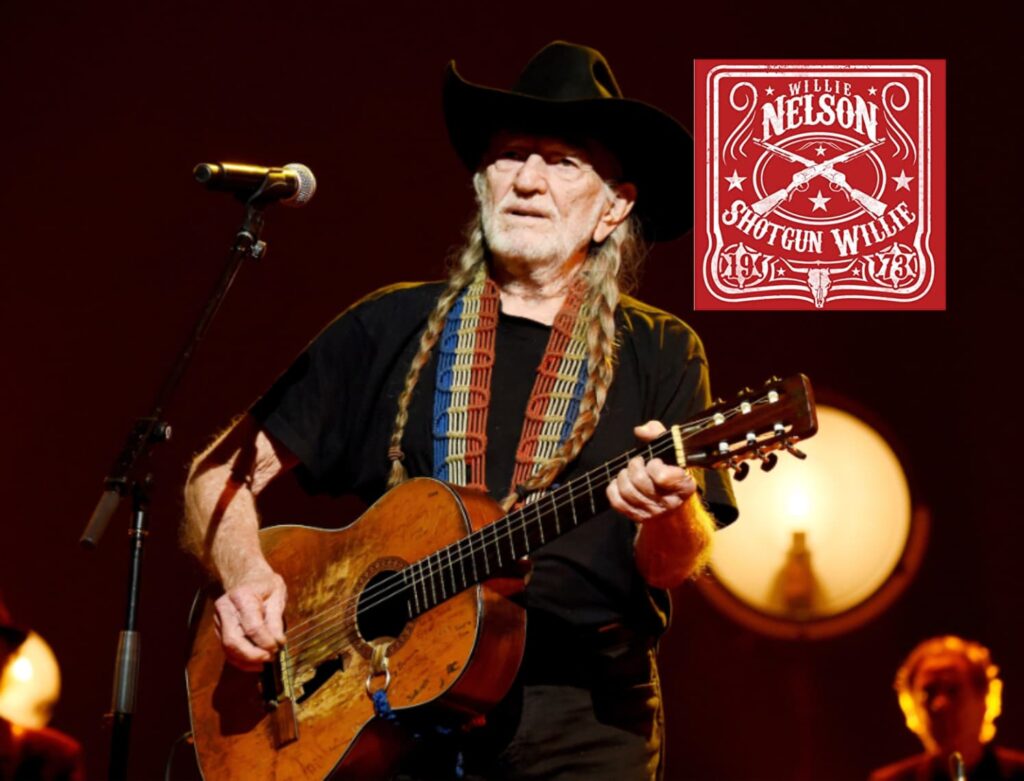
“Shotgun Willie”: A Maverick’s Manifesto, Blazing a New Trail for Outlaw Country
Ah, “Shotgun Willie.” The very name itself conjures up images of dusty roads, honky-tonk nights, and a certain red-headed stranger who forever changed the landscape of country music. For those of us who came of age with the sounds of Nashville, Willie Nelson was a familiar voice, but in 1973, with the release of his album and its eponymous title track, he became something more: an icon, a rebel, the very embodiment of “outlaw country.”
The album Shotgun Willie, released on June 11, 1973, didn’t exactly set the charts ablaze upon its initial release. While it didn’t achieve significant mainstream chart success, its importance cannot be overstated. The title track itself, “Shotgun Willie,” only managed to peak at a modest #60 on the Billboard Country Chart. However, what it lacked in immediate commercial fireworks, it more than made up for in its seismic impact on the genre. This wasn’t just another country record; it was a defiant declaration, a clearing of the throat for a man who had spent years trying to fit into the polished, often restrictive, mold of the Nashville sound. As Willie himself famously put it, Shotgun Willie was him “clearing his throat.”
The story behind the song and its peculiar title is as gritty and authentic as the man who sang it. The nickname “Shotgun Willie” didn’t come from some carefully crafted marketing campaign; it was born from a very real, very personal incident. In the early 1970s, Willie learned that his daughter, Lana, was being abused by her husband, Steve Warren. A protective father, Willie confronted Steve, leading to a physical altercation. The saga didn’t end there. Later, Steve returned to Willie’s Ridgetop, Tennessee home, opening fire with a .22 rifle. Willie, never one to back down, grabbed his own M-1 rifle and returned fire. The tale continues with Willie, armed with a shotgun, later shooting out Steve’s car tires when he came by again. When the police arrived, Willie, with his characteristic wit, simply claimed Steve must have “run over a bullet” in his driveway. This real-life, dramatic confrontation, a testament to his fiercely independent spirit and protective nature, cemented the “Shotgun Willie” moniker. It’s a vivid illustration of the man who refused to conform, who lived by his own code, and who was willing to fight for what he believed in, whether it was his family or his music.
Lyrically, “Shotgun Willie” is a rambling, almost stream-of-consciousness narrative that perfectly encapsulates the shift in Willie’s career and mindset. Lines like “You can’t make a record if you ain’t got nothing to say” directly reflect his frustration with his previous record deals and the creative constraints he felt. It’s a defiant middle finger to the Nashville establishment, a declaration that he was going to make music his way, on his own terms. The song’s raw, unvarnished honesty, from the casual mention of “John T. Floores was working for the Ku Klux Klan” (a controversial but very real reference to the owner of a legendary Texas music venue and local rumors) to the weary resignation of “It’s a dirty old world, but it’s the only one we got,” resonated deeply with listeners who were tired of manufactured sounds. It wasn’t about perfect vocal runs or slick production; it was about genuine storytelling, about life lived hard and real.
For many older listeners, Shotgun Willie wasn’t just an album; it was a feeling, a moment in time when country music started to shed its skin. It was the album that helped birth the “outlaw country” movement, paving the way for artists who prioritized artistic freedom over commercial conformity. It was a beacon for those who loved country music but yearned for something with more grit, more soul, something that truly reflected the complexities of life. Listening to “Shotgun Willie” now is like stepping back into that era, a time when Willie Nelson, with his long hair, bandana, and defiant attitude, became a voice for a generation weary of the polished and predictable. It’s a testament to the power of authenticity, a reminder that sometimes, the most profound artistic statements are born not from careful planning, but from lived experience and a refusal to be anything but oneself. The album, though not an immediate commercial smash, became a cult classic and, in retrospect, a foundational pillar of Willie Nelson’s legendary career and the enduring legacy of outlaw country. It was the sound of freedom, of a maverick finally unleashed.